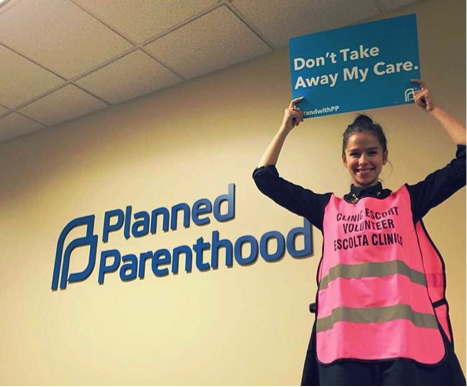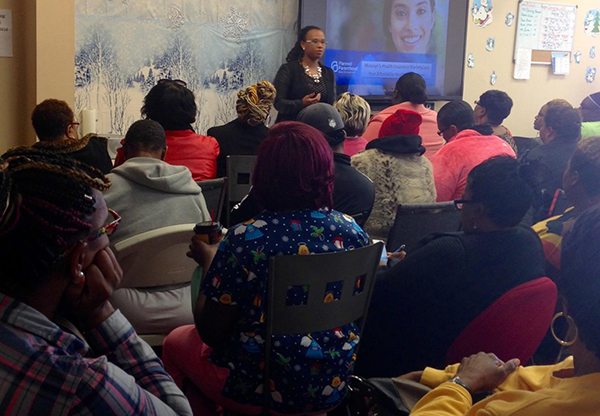Since the Affordable Care Act (ACA) was passed in 2010, it has shrunk uninsured rates and helped over 17.6 million Americans get affordable health insurance, and helped dramatically improve the uninsured rates among communities of color. How did so many people sign up? It’s thanks to, in large part, ACA assisters who help people enroll in coverage.
Planned Parenthood affiliates across the nation have supported ACA assisters since the first open enrollment opportunity in 2013 (OE1), and these assisters have gone out into their communities to help enroll thousands of people — many of whom are African American and Latino.
In honor of the ACA Latino and African American Week of Action, join us in celebrating all of our ACA assisters — and reading the our Q&A with two stand-outs: Diana Arellano and Christine Stallworth.
Diana Arellano, PPIL, Chicago Community Manager

PP: How long have you been working on the ACA?
DA: Since late September.
PP: What do you love the most about managing assisters?
DA: Working with my team. We all have such a passion for a person’s right to access healthcare and understand the value of why people need health insurance.
PP: Describe the communities you serve and the need for health insurance.
DA: The communities we serve are predominantly of color and low-income, as well as in areas recognized as food-deserts. Many of the people in those communities have jobs that tend to be low-wage and may not offer insurance coverage. These communities are directly affected by their environment and the difficulty of their work.
Due to those factors, and other related circumstances, the need for health insurance is very high.
PP: As a woman of color, what does it mean to do this work in the communities you serve?
DA: It means a lot to do this work because I get to work with the community I grew up in, as well as very similar surrounding working-class neighborhoods. They are communities that face many serious health conditions and where navigating the healthcare system is challenging due to people’s unfamiliarity with the system, limited support or language barriers. It’s a privilege to work with them and to give them everything that they need to make informed decisions on their health coverage.
PP: What is the best and hardest part of your job?
DA: The hardest part of my job is not being able to enroll people in health insurance on the first try because they have complicated needs and difficult circumstances to work through. But the best part is working with my team to see how we can help this person/family and ultimately get them covered under an insurance plan that works best for them.
Christine Stallworth, PPSLR, St. Louis, CAC

PP: How long have you been working on the ACA?
CS: I have been an assister since OE1; almost 3 years now.
PP: What do you love the most about being an assister?
CS: I love that I'm able help individuals and families understand ACA. I also love to empower my consumers to do this process on their own.
PP: Describe the communities you serve and the need for health insurance.
CS: In North County, Missouri, there are many communities of color that have varying socioeconomic status. The unemployed, underemployed, uninsured and under-insured numbers match national trends. Several hundred under-insured and uninsured women and men seek their health services through Planned Parenthood. PP has been a reliable way for me to meet community members where they are in their journey to healthcare.
PP: As a woman of color, what does it mean to do this work in the communities you serve?
CS: Being a woman of color and working in this community is most rewarding. I have built invaluable relationships with consumers and business owners. These relationships, in turn, have given me momentum in my outreach work.
This is especially true in the Ferguson /Florissant Missouri area, where more African Americans are under-insured and underemployed. The picture here is me presenting on the ACA to a group of 80 or more either under-insured and uninsured people. This presentation started the applications of many individuals and families in that area. This presentation alone increased my number of appointment through the end of month.
PP: What is the best and hardest part of your job?
CS: The best part of the job is that I can help anyone in their goal to getting coverage.
The worst part, I would say, is always the last day of OE. I never like telling consumer is the health insurance marketplace is closed.
Tags:

